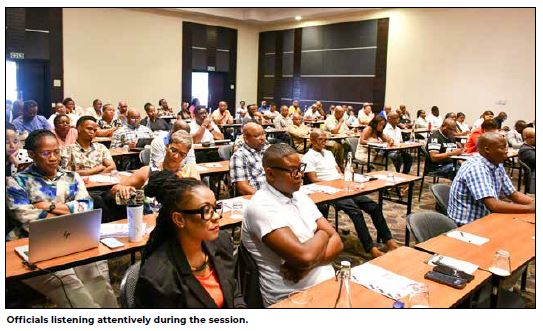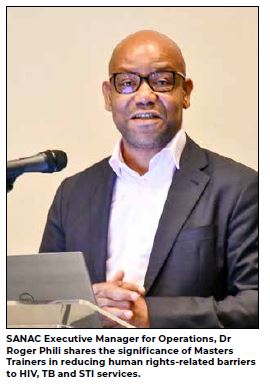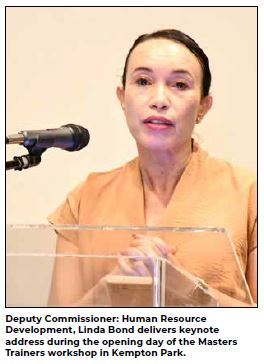
As part of its obligations to provide equitable access to health care services, the Department of Correctional Services (DCS) facilitated a three-day (11 -13 March 2024) Masters Trainers on Reducing Human Right-Related Barriers to Human Immunodeficiency Virus (HIV), Tuberculosis (TB) and Sexually Transmitted Infections (STIs) services among inmates.
The training was held in Kempton Park, Gauteng. One of the key fundamental human rights that the Constitution protects is access to health care services. Section 27 of the Constitution provides that everyone has a right to access to health care services, including reproductive health care services and no one may be refused emergency medical treatment.
The goal of the Master Trainers programme, spearheaded by the South African National AIDS Council (SANAC), is to uphold a culture of respect and dignity within the Correctional Services environment, by uniting public and private sectors in a collaborative effort to combat HIV, TB, and STIs in South Africa. A number of human resources officials, special programmes officers, and health care professionals from DCS nationwide attended the training, which fittingly coincides with the commemoration of Human Rights Month.

Expounding on the purpose of the training and collaboration with DCS, SANAC Executive Manager for Operations, Dr Roger Phili said: “DCS is one of our key stakeholders in regard to the three pandemics. The aim of this training is to capacitate DCS officials to deal with human rights issues that affect inmates because inmates are one of the key and vulnerable population groups identified in the National Strategic Plan for HIV, TB and STIs. The training also addresses the stigma and discriminations against vulnerable populations.”
Deputy Commissioner: Human Resource Development, Linda Bond explained that the initial cohort of 62 officials will undergo training, with a target of 2500 officials expected to participate thereafter. “This training is to make us reach one of the vulnerable groups which are inmates. The knowledge that the Master Trainers will gain from this training will assist other vulnerable groups in other communities, and we are hoping that this will assist in having more equitable access to health care services that are related to these three areas,” remarked Bond.

Chatherine Masote, DCS trainee official reiterated the importance of ensuring equitable access to health care services, as stipulated in the Constitution. “We need to observe goal number one of National Strategic Plan for HIV, TB and STIs, to reduce inequalities and barriers that prevent people from accessing essential services which are aimed at reducing these diseases. This session empowers attendees to put these measures in place,” she said
